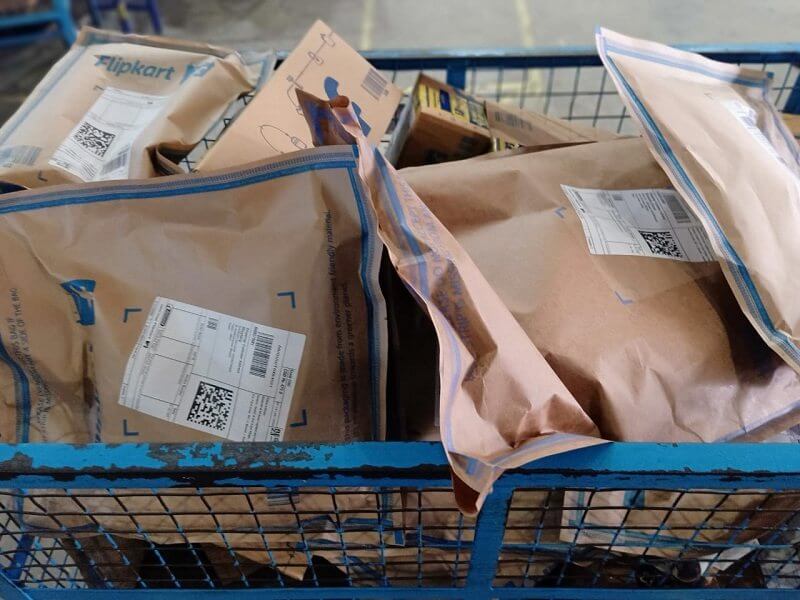WWF India case study on the Flipkart group showcases the larger collaboration by ecosystem partners is crucial to building a circular economy. Flipkart Group companies, including Flipkart and Myntra, have eliminated 100 percent single-use plastic packaging in their supply chain.
February 21, 2022

Greater participation by private stakeholders and other members of the value chain is crucial to building a holistic, circular plastic ecosystem to reduce plastic leakage into nature, the World Wide Fund for Nature India (WWF India) said in a case study on Flipkart’s sustainability efforts.
Titled “Designing sustainable packaging in E-Commerce: A WWF India Case Study on Flipkart Group”, the study outlines measures that businesses in the same space need to undertake and the ecosystem support needed to incorporate targets towards plastic reduction and its management in their value chain. The case study also outlines measures for businesses to venture into different designs of packaging and distribution models to improve recycling and recovery rates.
Commenting on the findings of the study, Varun Aggarwal, Associate Director – Sustainable Business at WWF India said, “A coordinated approach between e-commerce companies and all the other stakeholders in the plastics value chain is crucial to attaining a circular economy for plastics, Flipkart has a large secondary packaging footprint, making plastic waste management a key lever in its commitment to sustainability. The best practices adopted by Flipkart can be replicated by players in the same space to contribute to the mitigation of plastic waste.”
Watch: Paper Mart News Roundup
Flipkart Group companies, including e-commerce marketplace Flipkart and leading fashion destination Myntra have eliminated 100 percent single-use plastic packaging in their own supply chain by working with several stakeholders across traceability, plastic reduction, and brands and universities to name a few.
Flipkart has undertaken a series of initiatives to accelerate progress towards eliminating 100 percent single-use plastic in its own supply chain by 2021 for owned and operated facilities to replace it with suitable paper-based alternatives.
In the pilot phase, Flipkart’s team conducted pilots to identify the sustainable alternatives to reduce single-use plastics and the most efficient way of implementing them. As the program evolved, the company scaled up its processes to adopt the identified alternatives and deploy them across day-to-day operations. The invoice polybag has been replaced with recycled kraft paper pouch, airbags are replaced with shredded paper fillers, and plastic used for secondary packaging is replaced with paper bags. Also, shrink and pouches are replaced with paper stickers, and paper pouches, respectively.
Mahesh Pratap Singh, Head of Sustainability and Social Responsibility, said, “As a homegrown e-commerce organisation, the Flipkart Group is committed to building a sustainable business while playing the role of a catalyst in the creation of a thriving sustainable ecosystem. We are excited to have achieved a milestone of eliminating 100 percent single-use plastic packaging in our supply chain in a short span of time and look to aggressively working towards pushing the goal for our sellers and brand partners. We’ve also committed to sourcing from environmentally sustainable sources by working with various partners and becoming a proactive force for a better good. The WWF case study throws light on our efforts and offers a direction for the larger industry to come together for a greater cause.”
Also Read: Flipkart: Strengthening Commitment to Sustainable Solutions for Packaging
Through this case study, WWF has highlighted the need for active participation by the private stakeholders to ensure a holistic, circular plastic ecosystem to reduce plastic leakage into nature. As a leading digital platform engaging in online commerce of goods and services, Flipkart has a large secondary packaging footprint, making plastic waste management a key lever in its commitment to sustainability.



